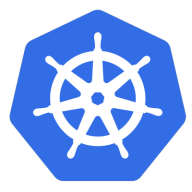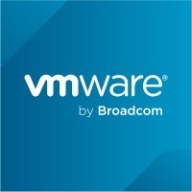

Kubernetes and VMware Tanzu Platform are competitors in the container management and cloud-native infrastructure category. Kubernetes appears to have the upper hand due to its scalability and cost-effectiveness, although VMware Tanzu offers strong integration with VMware tools.
Features: Kubernetes is highlighted for its scalability, container management capabilities, and automation. It integrates well with major cloud providers and is particularly effective in deploying microservices. VMware Tanzu Platform is notable for its integration with vSphere and VMware's suite of tools. It offers a unified solution with enhanced manageability and customization, making it appealing for comprehensive infrastructure integration.
Room for Improvement: Suggestions for Kubernetes include enhancing its dashboard usability, simplifying setup to reduce complexity, and improving network monitoring, security, and legacy application support. VMware Tanzu Platform could improve its integration with non-VMware solutions, cost-effectiveness, and support for third-party integrations, with users desiring lower costs to increase accessibility.
Ease of Deployment and Customer Service: Kubernetes provides deployment flexibility across public, private, and hybrid clouds, supported by a strong community and extensive documentation. However, official support may be slow, often relying on third-party providers. VMware Tanzu Platform offers structured support and integrates smoothly within VMware's ecosystem, though costs and cross-vendor integration can be challenging.
Pricing and ROI: Kubernetes is open-source with no licensing fees, making it a cost-effective choice initially, yet potential operational overhead and support costs may arise from cloud providers or third-party services. VMware Tanzu Platform is perceived as more expensive, reflecting its advanced features and integration capabilities. It may deliver substantial ROI for larger enterprises, but smaller organizations might find it less cost-effective compared to Kubernetes.
| Product | Market Share (%) |
|---|---|
| Kubernetes | 6.9% |
| VMware Tanzu Platform | 8.6% |
| Other | 84.5% |

| Company Size | Count |
|---|---|
| Small Business | 26 |
| Midsize Enterprise | 10 |
| Large Enterprise | 47 |
| Company Size | Count |
|---|---|
| Small Business | 10 |
| Midsize Enterprise | 3 |
| Large Enterprise | 10 |
Kubernetes (K8s) is an open-source system for automating deployment, scaling, and management of containerized applications.
It groups containers that make up an application into logical units for easy management and discovery. Kubernetes builds upon 15 years of experience of running production workloads at Google, combined with best-of-breed ideas and practices from the community.
VMware Tanzu Platform is designed for cloud-native development and management of Kubernetes, CI/CD processes, microservices, and containerized workloads. It supports deployments both on cloud and on-premises, providing centralized management via Mission Control.
VMware Tanzu Platform offers seamless integration with vSphere, ESX, and vSAN, supporting centralized cluster management and lifecycle management. The platform provides a GUI for monitoring CI/CD pipelines and network policies, enhancing multi-tenancy and Day 2 operations. Users can easily manage Kubernetes clusters, monitor applications, and integrate with tools such as GitHub, GitLab, Cloud Foundry, and Azure. It ensures compliance and security for service providers, financial institutions, and businesses.
What are the key features of VMware Tanzu Platform?
What benefits and ROI should users look for in VMware Tanzu Platform reviews?
Industries such as financial institutions, service providers, and businesses requiring rigorous compliance and security deploy VMware Tanzu Platform. These entities benefit from centralized management, streamlined DevOps processes, and integrated tools, enhancing their capabilities in cloud-native developments and containerized workloads.
We monitor all Container Management reviews to prevent fraudulent reviews and keep review quality high. We do not post reviews by company employees or direct competitors. We validate each review for authenticity via cross-reference with LinkedIn, and personal follow-up with the reviewer when necessary.